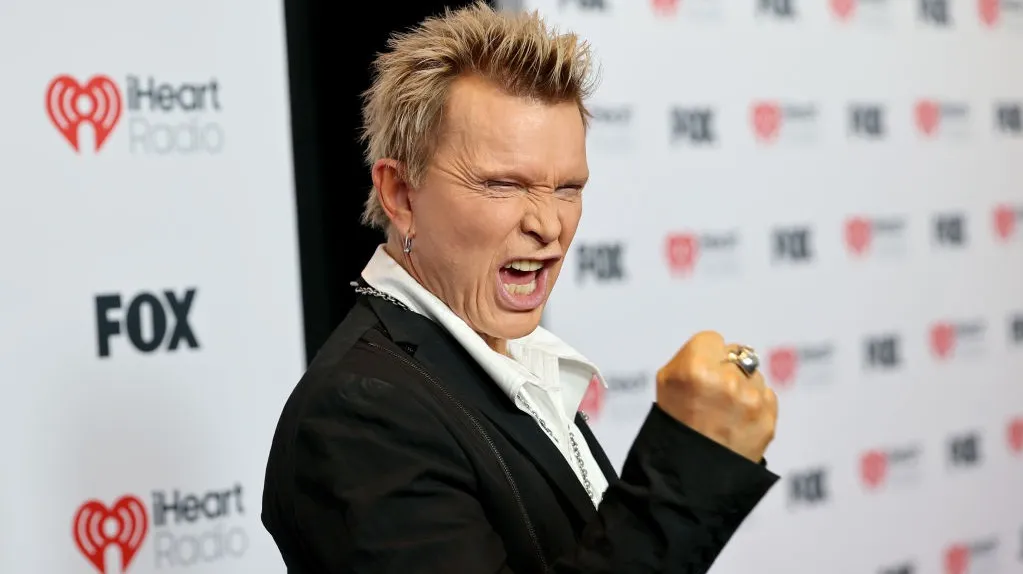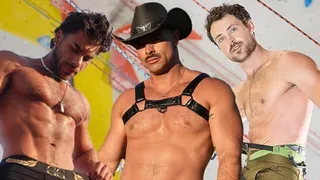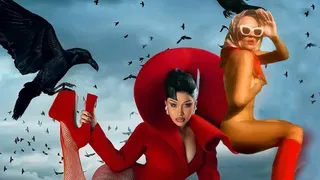May 9, 2015
'The X-Men's' Iceman Comes Out as Gay
Kilian Melloy READ TIME: 5 MIN.
The Iceman has cometh out of the closet.
Longtime X-Men member Bobby Drake (a.k.a. Iceman) is gay, and the storyline made its debut in Marvel's recently released "All New X-Men" #40 comic book.
In the book, released April 22, Drake's teammate, Jean Grey, looked into his mind and told him that he's gay.
"All New X-Men" is part of the popular "X-Men" comics in which people with mutant powers come together not only to combat supervillains but also to bring peace and harmony between humans and mutants. "All New X-Men" writer Brian Michael Bendis told the Huffington Post that Drake's outing is part of a bigger story.
"There are thousands, if not millions, of stories of people who, for many different reasons, felt the need to hide their sexuality," Bendis said. "The X-Men, with the conceit of time travel, give us a fascinating platform in which to examine such personal journeys. This is just the first little chapter of a much larger story that will be told."
History of LGBTQ Comic Characters
However, Iceman isn't the only gay comic book character. Many comic characters, including superheroes who are LGBT, have been entertaining readers for decades. From the sexually ambiguous Krazy Kat (1913 to 1944) to the first comic that featured a lesbian ("Sandy Comes Out" Wimmen's Comix #1, 1972), comics have had their share of LGBT characters.
In the old days most comic books were all about white guys with superpowers who fought Nazis and other criminals. But as time moved on those comics were filled with people from other backgrounds and ethnicities, including LGBTs.
"As the fandom gets louder and demands more representation, companies behind these heroes work to make their stories accommodate a broader range of diversity," Nick Rowe, social media manager for Dr. Comics and Mr. Games in Oakland told the Bay Area Reporter via email. "Of course, impact on readers is going to operate on a case by case basis, but showing a willingness to include LGBTQ characters has the potential to show readers that superhero comics aren't just for straight, white people. Rather that they're for anyone."
Some of these characters include Catwoman, Batwoman, and Green Lantern (all from DC Comics) and Northstar (Marvel).
In issue #39 of her solo series that came out in February, Selina Kyle, the old Catwoman and Batman's rival and on and off again lover, came out as bisexual after she kissed Eiko Hasigaway, who is currently filling in as the new Catwoman. Kyle is now the leader of Gotham City's Calabrese crime family.
In the 1950s, Batwoman was originally created to counter the fact that Batman and Robin were not gay (psychologist Fredric Wertham, author of "The Seduction of the Innocent," claimed that Batman and Robin were homosexuals.) Like Catwoman, she pined for the Dark Knight's affections. Despite the fact that she was killed in the late 1970s, DC rebooted Batwoman as a red-haired, butt-kicking, badass heroine who focused on two things: Fighting crime and wooing the same sex.
Alan Scott, the first Green Lantern, joined the LGBTQ bandwagon when his character was rebooted a few years ago. While riding on a train, Scott was going to propose to his boyfriend, Sam, when it crashed. Scott survived, with help from a green flame, but Sam didn't. The flame turned Scott's engagement ring into a power ring, which allows him to fight evil.
Northstar was a part of Canada's superhero Alpha Flight team but currently serves his role as one of the X-Men. Like his teammate Iceman, Northstar is gay. He outed himself in the early 1990s and married his boyfriend, Kyle, in an issue of "Astonishing X-Men" #51 , which was released in 2012.
"The more queer representation in comics the better. And superheroes are icons for power, virtue, and goodness in society," said writer, creator, and San Francisco resident Brian Andersen via e-mail. "We need more gay heroes to rise up and be every bit as powerful, virtuous, and good as any other hero."
Gay Mormon Superhero
In 2007, Andersen wrote and drew his first comic, called "So Super Duper." The all-ages comic focused on a hero named Psyche, who is gay. Now Andersen is at work with a new comic called "Stripling Warrior." The book focuses on Sam Shepard, a Mormon, who gets a visitor in the form of an angel who "calls [him] to become the Hand of God on Earth, tasked with smiting those in need of smiting." And thus Shepard becomes the first gay Mormon superhero. The comic has been successfully funded by the crowdfunding site Kickstarter.
Andersen, who is gay and a fan of the X-Men, said that Iceman "always exuded a kind of homosexual energy."
"Like in most boy bands, there's usually at least one gay one," he quipped.
Andersen also said that gay superheroes "will not only break down walls, but will crash and smash through them like pink-skinned, gamma-irradiated gay Hulks."
"The more we see queer characters living lives, fighting crime, [and] being human, the more walls will come down. And the less the LGBT community will be viewed as an 'other' by those who oppose us," he said.
In an e-mail from Joey Stern, president of Geeks OUT in New York City, gay storylines and characters can bring something new to the table.
"A well written queer character can absolutely break down walls, opening readers and the stories up to new kinds of experiences," Stern said.
Uel Carter, who is a manager at Fantastic Comics in Berkeley, said when it comes to stories like this it's all about making money. He also said that if there is "no reader" there is "no comic." However, Carter likes the notion of having LGBTQ superheroes in comics.
"There's nothing but good about it," said Carter. "I like a palette to choose from [regarding different characters]."
Even though these characters are getting attention, some say that much work has to be done before people can fully embrace an LGBTQ comic character.
"I think that it's possible but I don't believe we've gotten to a place as a culture where we can equally value characters from a variety of backgrounds," said Grace Martin who works at Half Price Books in Berkeley.
Added Rowe, "We see comics as more of a pop culture distraction rather than a serious art form, so the impact any individual comic has, let alone the identity of an individual character, will likely never be powerful enough to instill a big degree of change. While wider representation is a huge accomplishment in of itself, I think until we start viewing comics as a serious artistic medium any wall-breaking will be relegated to the critic and existing fan communities."
Carter said that as time progresses, "acceptance occurs."
San Francisco resident Audrey Dufresne said that she finds it "awesome" that LGBTQ superheroes are out there.
Her friend, Taylor Lopez, said, "It's a long time coming for equality between sexual orientations."
Andrew Farago, curator for the Cartoon Art Museum in San Francisco, said that there are readers out there who are open to the change in comic books.
"Archie Comics introduced Kevin Keller, an openly gay classmate of Archie's at Riverdale High, in 2010. Readers embraced him, he's got his own book now, and he's been their most popular new character since the 1960s," said Farago. "If a publisher as steeped in traditional values and nostalgia for classic Americana as Archie can introduce a gay high school student without the world coming to an end, superhero comics can certainly do the same."
Farago said that there's a definite future for the LGBTQ comic characters.
"I don't know if Marvel and DC will out more established characters or reintroduce or relaunch established characters as gay, but I'm sure that we'll see plenty of new LGBTQ characters in the years ahead," he said. "As the readership and the creative talents continue to diversify, that's going to have an impact on the comics, too."
Kilian Melloy serves as EDGE Media Network's Associate Arts Editor and Staff Contributor. His professional memberships include the National Lesbian & Gay Journalists Association, the Boston Online Film Critics Association, The Gay and Lesbian Entertainment Critics Association, and the Boston Theater Critics Association's Elliot Norton Awards Committee.




